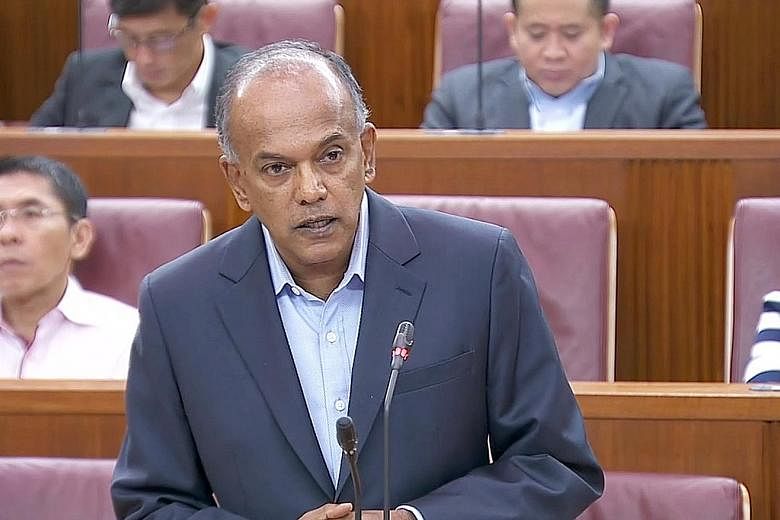It could take as short a time as nine days for the High Court to hear a case after an individual challenges a minister's decision under the proposed fake news law.
In addition, no court fees will be charged for the first three days.
Home Affairs and Law Minister K. Shanmugam disclosed these details yesterday as he gave an overview of the process of appeal under the Protection from Online Falsehoods and Manipulation Bill.
In the face of criticism that it could be too onerous for individuals to seek redress, he spoke about how it would be made "fast" and "simple", with costs "kept very low".
Under the Bill, a minister can order an individual to remove content that is deemed false or run a correction alongside it, among other things.
An individual who does not agree will first have to comply, and can then appeal against the order.
To do so, he will have to first apply to the minister to cancel the order, and if this is unsuccessful, file an appeal in court.
Critics have said this could allow ministers to delay the appeals process indefinitely.
Mr Shanmugam set out the timelines of the various stages, including the number of working days each party can take to respond.
He said the practice of having ministers decide on applications by aggrieved persons as a first step is consistent with the "usual position of exhausting administrative remedies before resorting to a judicial remedy".
A minister must decide within two days of receiving an application, after which an individual has up to 14 days to file his appeal in court.
The court documents must then be served on the minister no later than the next day, and he will have up to three days to file his reply in court. The High Court will have to hear the case no later than six days after receiving the appeal application.
Sketching out the process yesterday, Mr Shanmugam said the court will continue to have a general discretion to extend timelines, for instance, when an aggrieved person needs more time. He added that the time it takes to decide on a case is a matter for the courts.
Besides making the appeal process fast, the process will also be made simpler, with standard forms used for filing the application to the minister and filing the appeal in court. The forms must be sent to designated e-mail addresses, which will be provided under the law.
Mr Shanmugam said this will allow people to present their own arguments instead of hiring lawyers.
Critics had raised concerns that going to court would be a costly affair. Mr Shanmugam reiterated that costs would be kept "very low", with no court fees for three days of a hearing, although further days will be charged at the usual rate.
But the courts will have the power to waive fees, he added, while warning that people should not abuse the process.
Details of the process will be spelt out in the subsidiary legislation of the law, which is where procedural and administrative details are set out. Typically, laws passed do not come into effect until after the subsidiary legislation is in place.



